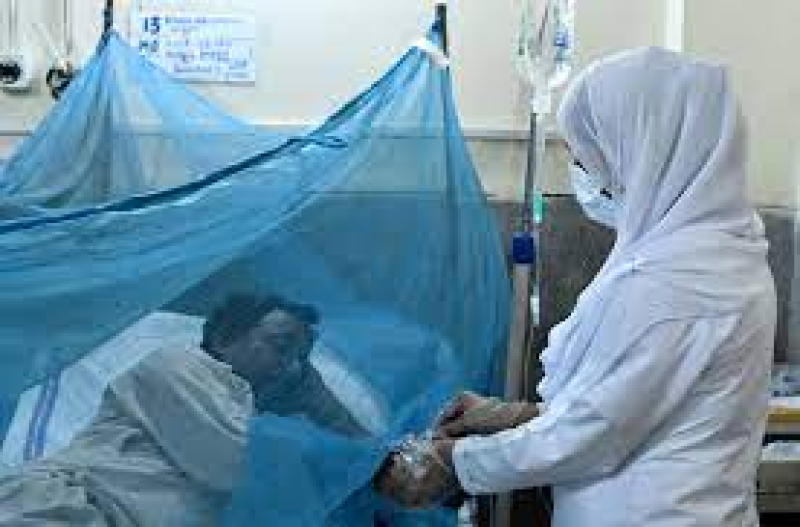- Machado dared to imagine a better world, worked tirelessly: Prof Yunus |
- Dhaka-Ctg highway 10-lane expansion shelved; focus shifts to railway |
- Trump warns of 100% tariff on Chinese Imports, U.S. Tech export restrictions |
- Thousands Return to Ruins as Gaza Ceasefire Brings Hope |
- From posters to punchlines: How Bangladesh’s politics got 'Meme-ified' |
Beware of the effects of new dengue variants

Doctors have observed that the effects of the latest variants are far more serious on patients,
Doctors have observed that the effects of the latest variants are far more serious on patients, who caught the virus for the second time, than their predecessor.
For Ruma Parvin (not her real name), a homemaker in Dhaka’s Mothertek, the last couple of weeks were hellish.
She has been battling high dengue fever, and when her condition worsened, the worried family admitted her into a hospital in Dhaka last week.
“She has been constantly vomiting. She could not contain even a small portion of food in her stomach. Blood was passing through her urinary tract and rectum. The platelet count dropped to 16,000. We were so worried,” said Lokman Ali (not his real name), Ruma’s husband, who has been constantly on her side since Jul 1, the day Ruma was admitted to the hospital.
Lokman confirmed that his wife was diagnosed with dengue earlier this year in January, but her condition did not turn so bad then.
Caught dengue fever for a second time? Beware of the effects of the new variants
Not only Ruma but family members of two other women also admitted to the same hospital and apparently in equally bad shape, told bdnews24.com that the doctors at the hospital, after running some diagnostic tests, informed them that they found traces in their blood confirming that the women suffered from dengue fever earlier, which was not diagnosed at the time.
Physicians have already issued warning that the antibodies created inside the body of a patient who suffered from DEN-1 type of dengue fever have been failing to protect the patients who caught the virus the second time, with either DEN-2 or DEN-3 serotypes, and those patients have been suffering the most.
- According to Nature magazine, a renowned scientific journal, Dengue infections are caused by four closely related viruses named DEN-1, DEN-2, DEN-3, and DEN-4. These four viruses are called serotypes because each interacts differently with the antibodies in human blood serum. There are other dengue strains found worldwide.
- Serotypes are groups within a single species of bacteria or viruses with distinctive surface structures.
The monsoon, peak months of dengue fever, has yet to settle in, but the queue of patients suffering from the potent virus is getting longer each day.
According to medical histories gathered so far from this year’s hospitalised patients, the
majority suffering from the deadly fever this year were diagnosed with either DEN-2 or DEN-3 serotypes, and they suffered from DEN-1 not so long ago.
Bangladesh Institute of Epidemiology, Disease Control and Research recently carried out a small study by testing the blood of 200 patients with dengue symptoms, and the results indicated that at least 62 percent of them had been suffering from DEN-2 and the rest, 38 percent from DEN-3.
Doctors have observed that the effect of DEN-2 and DEN-3 serotypes is far more serious on patients who caught the virus for the second time than their predecessor.
Cumilla man Anwar Zaman (not his real name), who has been receiving treatment at a public hospital in Dhaka, confirmed the hypothesis.
“I didn’t suffer much when I was diagnosed with dengue back in 2018. But this time around, it even weakened my bone,” he said.
Anwar, who was in remission while speaking to bdnews24.com, described how he felt when the variant was ravaging his body in colourful detail.
“It was so bad! I could neither lie down for 10 minutes nor sit for ten minutes. Every part of my body, including my hands, feet, and chest, was aching. Platelet count was dropping like a sack of flour,” he said.
- As of Thursday morning, the number of dengue hospitalisations this year has reached 11,117, and the death toll was 64.
- In 2020, 1,405 people contracted the disease at the peak of the coronavirus pandemic, and no one died. The number of reported hospitalisations was 28,429 in 2021, with 105 deaths. In 2022, there were 62,382 dengue hospitalisations nationwide, with 181 deaths. Dhaka alone saw 39,220 patients admitted to hospitals.
rof Dr Ahmedul Kabir, the additional director general of the Directorate General of Health Services, or DGHS, described why the antibodies created in a DEN-1 patient’s body fail to protect when the same patient catches a different serotype.
“The problem we have been facing with people with DEN-1 antibodies is that when the DEN-2 serotype hits them, the DEN-1 antibodies go to hyperdrive, which affects a patient’s body severely, resulting into body plasma leakage, and sometimes shock [a critical condition brought on by the sudden drop in blood flow through the body],” he said.
“Our [DGHS] data indicate that most people in hospitals with severe conditions already have DEN-1 antibodies. These people are our most serious patients as their conditions turn critical quickly, within two to three days, instead of four to five days, the time a dengue virus takes to incubate into a host body.”
Prof Dr Md Nazmul Islam, line director of DGHS’s Communicable Disease Control, raised another alarming issue.
“Since a good number of DEN-1 patients with mild symptoms had not been hospitalised in previous years, especially in the last 30 years, we lack hard data about an approximation of how many people have DEN-1 antibodies in their bodies, which is concerning,” he said.

